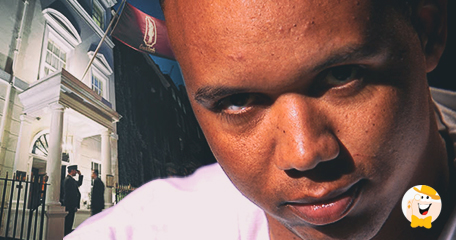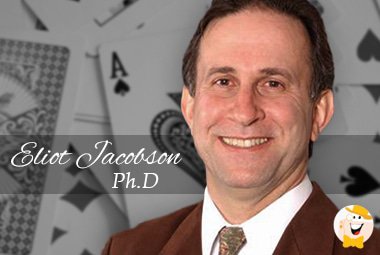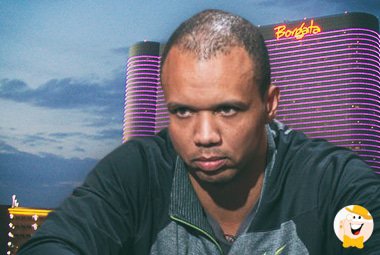
In a last-ditch effort to recover the nearly eight million pounds that Phil Ivey won from Crockfords Casino London, that the casino refused to pay, Ivey (and partner Cheng Yin Sun) are taking their case to the Supreme Court of the United Kingdom. The subject matter of the case is whether or not the edge-sorting, combined with the concessions that Ivey got the casino to make to both himself and Yin Sun constitute cheating on their parts.
The case started when Ivey utilized the advantage play tactic of edge-sorting to achieve a mathematical advantage in a game of Punto Banco (Baccarat) at the Crockfords Casino London. Ivey wired one million pounds to the casino as, “Front money,” and, in exchange, was able to convince casino management to grant him a number of concessions that he requested in exchange for playing there.
After winning close to eight million pounds from the casino, the casino refused to pay him and was only willing to return his initial deposit into the establishment. Ivey then sued the casino to recover his legitimate winnings and lost in the initial court. Ivey made an ‘Appeal-of-Right,’ ( an appeal that cannot be refused by the Court) to the next court up, and his case was decided against 2-1.
Ivey’s case accepted for hearing by the U.K. Supreme Court is significant for a couple of reasons. The first of those reasons is the fact that the U.K. Supreme Court was not compelled, by law, to hear the case which means that they must have found that there is a legitimate matter to be argued. In the case of the first appeals court, much as is the case within the United States, they have essentially no choice but to at least review the Brief of Appellant simply by virtue of the fact that the case was heard in the court immediately below it.

The second reason that this is a major development is that the U.K. Supreme Court may well weigh in on specific matters involving the case. While most gambling professionals (on both sides of the table) recognize that edge-sorting does not constitute cheating, it would still be a landmark decision to have that declared by the highest court in a given country. Additionally, there are other factors in this case that the court may shed some light on, so this could represent a landmark decision that is cited by one side or the other in casino-related cases for a very long time.
For those of you who are unfamiliar with edge-sorting, it is a process by which an advantage is gained by identifying imperfections on playing cards. Then using those flaws in a way that results in a particular card being more likely to be a specific range of ranks (or definitely among a range of ranks if the whole shoe is sorted) based on what is showing on the card. Eliot Jacobson, Ph.D. of APHeat.net provides an excellent introduction to edge sorting in this Youtube video.
In that video, Dr. Jacobson intentionally utilizes an extremely flawed deck of cards and highlights the difference between the way the backing of the cards appears on one side vs. how it appears on the other side. In and of itself, that doesn’t actually matter much, but it can be made to matter when the cards are situated such that cards of a particular range of ranks will have a given side showing. Let’s say half diamonds, for example, as in the video, while the other ranges of card ranks will have the opposite side (full diamonds in the video) showing.

This technique does not result in a sure winner, which is one of the several components that prevents this method from constituting cheating. For example, if we consider that a perfectly sorted deck with, perhaps, a half diamond showing will either be an Ace or Ten-Value in the game of Blackjack while knowing that and betting accordingly gives the player a tremendous advantage, it does not automatically mean the player will win the hand.
Baccarat is a slightly more complicated game to explain precisely how edge sorting might work compared to Blackjack, so even though Baccarat is the relevant subject matter game, I’m going to use Blackjack as an example for those of you largely unfamiliar with edge sorting.
Imagine a Blackjack game in which the players get to handle their own cards and the same cards are used throughout several shoes, or the same deck is used for several cycles in a single or double-deck game. What a group of players, working as a team, might do is turn all of the cards that they get such that the half diamonds might be, “Looking at them,” when the dealer is holding the cards if the card in question is an Ace or a Ten-Value. What will then happen is that the player sitting at first base (the person the first card will go to) will make a large bet if the card is favorable or a smaller bet if the card is not a favorable card to start with.
The other players will either be betting small amounts, or perhaps counting cards and, “Playing with the count,” but in almost all cases, none of them would have any inkling that they are more likely to get either a favorable or unfavorable card prior to making their bets. In other words, the player at first base is the only one who knows that he has a better or worse chance of winning the hand based on the probable card coming out. Therefore, is the only one who is going to significantly be varying his/her bets based on the probable rank of the “First card out.”
In the case of our hypothetical Blackjack game, the players are going to be able to alter what side is, “Showing,” on any cards that they touch, however, the cards that the dealer gets will likely not be altered in this way. In other words, the first base player can eventually come to the knowledge that the card showing the half diamonds will often, but not definitely, be one of the cards of the desired rank.
In the case of Ivey and his partner, they were able to come to know that every single card (barring a failure on their parts or a case of flawed sight of the card) would absolutely be the range of ranks that they suspected it would be. The reason for that is that they effectively got the dealer to turn every single card for them! We will get into the subject of how that happened (and why the casinos are claiming they cheated) later, but for now, let’s take a look at two tactics that a casino can employ to essentially make edge sorting completely ineffective:
Turn the Cards:
-The easiest mechanism to combat against edge sorting is to simply make it procedure for your dealer to turn half of the cards 180 degrees prior to placing them in the shuffling machine. What this does is, after the cards are shuffled, essentially nothing can be known about the cards that have the half diamonds showing. It is also important that it be something closely resembling half of the cards because, if it is only a small fraction of them, the odds of the half diamond cards still being of the known rank remain disproportionately high compared to random, perhaps high enough to make a difference.
Use High Quality Decks of Cards:
There is more to a quality deck of cards than graphics and how smoothly they can be dealt out and used. A high quality deck of cards, perhaps most importantly, will also have a highly uniform backing. When a player is looking at one side or the other of the back of the card (usually the left side) and rotates it 180 degrees, the left side of the card looks virtually no different, at least, not to the naked eye.
The more consistent the card backing is, the more difficult it is to edge sort. Inconsistent card backings can come from fundamentally flawed design elements and improper cutting of the cards (by the machine that manufactures the cards) alike.
______________
That’s it, that is all it takes! Two things that the casinos should be doing, anyway!
The Ivey Advantage:
Instead of doing those things, the subject matter Crockfords Casino London and the Borgata in Atlantic City, New Jersey, walked directly into Phil Ivey’s hands and essentially enabled him to print money in their casino.

The first thing that they did not do is use the two techniques outlined above to render edge-sorting obsolete. The second part is four-fold and involves what they did, which is make edge-sorting that much easier for him and his partner!
The Four Ways the Casinos Handed Ivey Money:
There are four common elements to Ivey’s ability and statistical probability of absolutely demolishing both of those casinos, and here they are:
1.) Giving Ivey a Special Dealer:
Ivey requested a special Mandarin-speaking dealer which is a language that his playing partner, Cheng Yin Sun, is able to speak. Essentially, Ivey’s partner was able to communicate with the dealer in a language that was not readily understood by anyone who might happen to be watching, and requests that the dealer turns certain ranks of cards a certain way which enabled them to edge sort the cards without even necessarily touching them! In addition to there being a potential language barrier between the dealer, the partner and anyone else who might be listening, the fact that the pair were not directly touching the cards probably also caused the casino to feel confident that their game was being protected properly.

2.) Using an Automatic Shuffler:
The automatic shuffler is important because, while it randomizes the cards, it keeps all of the sides of the cards in the same orientation, which is to say it doesn’t rotate any of them. If the cards are sorted in a manner that is beneficial for the edge-sorting advantage player, then it is very important (see Protection Measure #1 above) that the cards not be rotated 180 degrees for any reason or the entire purpose of sorting them in the first place could be defeated.
In essence, the cards could come from the most piss-poor deck in the history of the Universe, but if half of them are rotated 180 degrees, the back of the cards (absent flaws unique to a specific card, i.e. marking) tell you nothing about what is on the face of the cards.
3.) Using a Crappy Deck
Remember that other protection measure we discussed, making sure not to use a flawed deck, and taken even further, to use as uniform a deck as possible? In this case, the casino used, perhaps, one of the most flawed decks imaginable. You might ask: Why would they do this?
Answer: Because Ivey requested those cards.
That’s right! The casino literally went out of its way to ensure that Ivey was playing with decks of cards that had flawed backings! Not only did the casino not engage in what are considered generally fairly well-known protection measures to prevent edge-sorting, they essentially went out of their way to make it easier for Ivey to do so!
Think about it this way: If someone ever comes to your house to play poker with you, and absolutely insists he will only play if you guys use the deck that he brought to your house, there is probably a good reason why. You should use your own deck, or if he refuses, at least try to get him to go to the store with you to buy a different one!
4.) That the Same Decks Be Used Throughout the Entire Trip:
This stipulation was just icing on the cake. Not only did the casino personally hand Ivey a sortable deck, an automatic shuffler that wouldn’t rotate the cards and a dealer to do the sorting for him...they also made sure that the cards would only need to go through once to essentially mostly be sorted to Ivey’s specifications. Really, they could have just saved time and let him sort the deck right off the bat, but his plan might have even been obvious enough for management at those two casinos to catch on, at that point.
Did Ivey Cheat the Casinos?
In my opinion, Ivey did not cheat the casinos under any reasonable standard that I can think of. The casino dealt the game to Ivey’s specifications, which, by the way, was entirely the casino’s choice to do. There was negotiation, understanding, and agreement.
Think about it; you have an individual who has made his living as a well-known professional gambler (mostly poker) for years, this guy is not a stranger to even casual poker fans, does it make sense to allow him to negotiate the terms of the game that you are offering him? If Phil Ivey or anyone else who butters their bread wants to play in your casino, then you need to ask yourself, “Why should they want to play here? What possible advantage could they have?”
If anything, the casino cheated at its own game in favor of Ivey during which time they thought that, even with Ivey’s stipulations, that the House Edge had not swung all the way into a player edge favoring Ivey at all. If he had swung, it had not done so meaningfully enough to give Ivey an advantage.
Let’s take nothing away from Ivey for craftiness in all of this. The claim that he made in these negotiations is that many of the stipulations he demanded were for superstitious reasons, such as the turning of the cards in and of itself. However, anyone using just the smallest amount of common sense would conclude that one of the best poker players on the face of the planet is probably not a terribly superstitious guy.

In any event, I believe that Crockfords’ refusal to pay Ivey and the fact that Borgata sued to recover, “Their money,” reflects badly upon each of those casinos and on the industry as a whole. People are often worried about online casinos, “No paying,” people, but it seems that there are at least two casinos that are willing to either no pay or sue to recover rightfully won by the player and that the court system (so far) is backing up the casinos.
What Are the Long-Term Effects?
The unfortunate fact of the matter is that these cases have combined to shine a light on the concept of edge-sorting the world over. While the concept of edge-sorting was not exactly a well-guarded secret, it was at least obscure enough that casino representatives would not be aware of it simply by way of following general gambling news. If there are any casino representatives out there now who are unaware of edge sorting and even remotely have anything to do with table games, it just means that they suck at their jobs.
In addition to the spotlight on edge sorting, there are going to be some legal decisions that may give more casinos the idea to try to take legal action against players who they believe may have, ‘Cheated,’ them, even if the players obviously haven’t. The fact that Ivey lost in the lower courts, at all, is a pretty serious blow to advantage players, in general, and so far, the courts have concluded that edge-sorting is not illegal or cheating. Somehow there are circumstances by which the casinos still have the right to recover any monies lost to an edge sorting player.
One might ask: Doesn’t this only apply because of the special conditions Ivey got from the casino? If a player went into the casino without any special concessions being afforded him, isn’t it true that the player would have nothing to worry about even if he was sued?
Answer: I don’t know, maybe.
The fact of the matter is that allowing the casino the right to recovery for being beaten by a player who was given, of the casino’s free will and volition. A special set of conditions could set the stage for casinos to at least attempt to go after other players, in civil court, who may not have been given any special playing conditions whatsoever. In other words, barring a major court’s ruling directly to the contrary, what we might term, “Ordinary edge-sorters,” might be fair game for being prosecuted by the casinos.

One difference between the Ivey case and, “Ordinary edge sorters,’ is the admission. Ivey essentially admitted to having an advantage and pointed out specifically what it was and why he had it. In comparison, the accusation that a given player, or players, who were not granted any special conditions engaged in edge sorting might be a little more difficult to prove.
Conclusion:
Hopefully, the Supreme Court of the United Kingdom not only rules in Ivey’s favor, but additionally, makes some statements as to the legality and legitimacy of some of the tactics used to edge sort, in general. If a player cannot go into a casino’s, ‘House,’ and beat the casino at the game that the casino is willfully and knowingly offering, under Rules granted by the casino without the risk of being sued by the casino (or not being paid) then how is gambling fair?






Mission146 7 years ago
7 years ago
Jade, That's a good point, I never thought about the prepaid legal team angle.
Please enter your comment.
Your comment is added.
jade 7 years ago
7 years ago
Very interesting article. Most casinos have an expensive legal team on retainer long before these guys or anyone similar ever walk through their doors. Whether it was a legitimate win or not, it was a lot of money , enough money for the casino to utilize this prepaid legal team to get it back. Whatever the circumstances,...
Very interesting article. Most casinos have an expensive legal team on retainer long before these guys or anyone similar ever walk through their doors. Whether it was a legitimate win or not, it was a lot of money , enough money for the casino to utilize this prepaid legal team to get it back. Whatever the circumstances, they were gonna try! Too bad, they may be helping to set a president that even they might not be able to live with, in the end............................
Show morePlease enter your comment.
Your comment is added.
Mission146 7 years ago
7 years ago
True that!
Please enter your comment.
Your comment is added.
Geno 7 years ago
7 years ago
While this is an interesting article, I would submit that Phil Ivey is a well trained angle shooter. I wouldn't let him in my casino if I was the boss.
Please enter your comment.
Your comment is added.